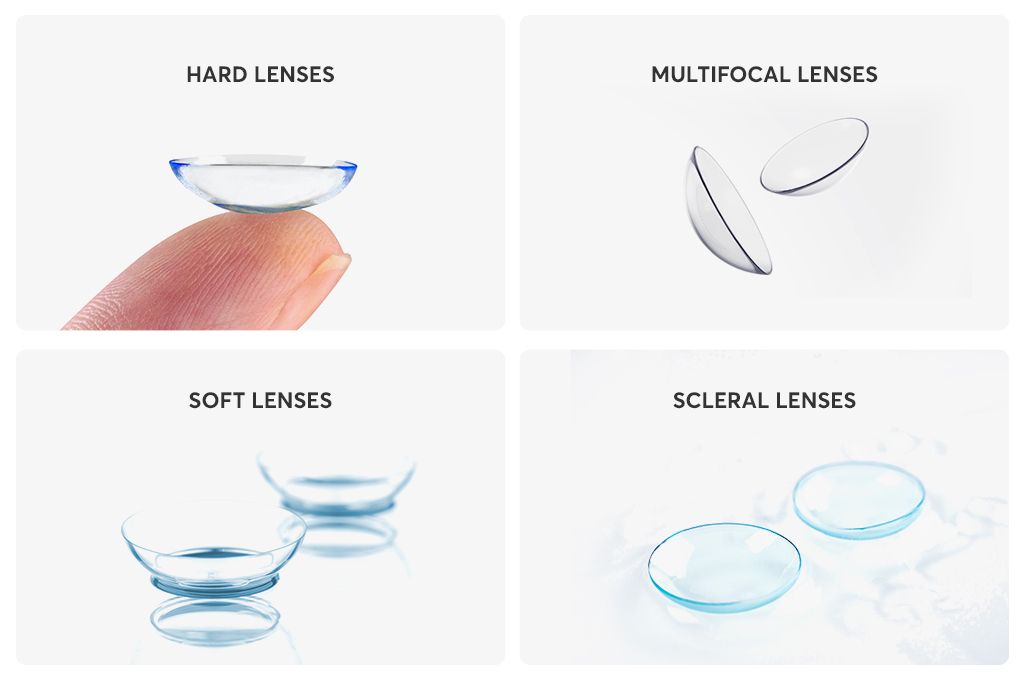
Services
Eye Care Services In Cypress, TX
Our services aim to restore the body to its natural state of optimal health. We offer a wide range of specialized services, therapies and techniques to make your journey to lasting wellness as efficient and effective as possible.

Neurolens
Neurolens are the first and only prescription lenses that include an element of contoured prism in their design. This prism is designed to bring the patient’s eyes into more equal alignment, and this should help to provide relief from the symptoms that are associated with several eye misalignment conditions, including digital eye strain and binocular vision dysfunction.

Myopia Management
Myopia is a very common issue throughout the world. Approximately 1/3 of the population in the United States have the condition and over 90% of several East Asian countries suffer from myopia. While myopia may seem like such a common condition that it shouldn’t be cause for concern, it is actually associated with several very serious conditions that can threaten one’s ability to see.

Dry Eye Treatment
While dry eye isn’t a serious condition, it can have a major impact on your quality of life. You may find your eyes get tired faster or you have difficulty reading. Not to mention the discomfort of a burning sensation or blurry vision. Let’s take a look at dry eye treatments – from simple self-care to innovative prescriptions and therapies – to help you see clearly and comfortably.

Specialty Contact Lenses
Every patient is different and so are their eyes. This means that there need to be different types of contact lenses to suit each individual. Some patients have corneal abnormalities which mean that conventional lenses won’t sit comfortably on the surface of their eyes, while others suffer from eye conditions that mean normal contact lenses won’t be comfortable or could irritate their eyes.

Comprehensive Eye Exam
The American Optometric Association recommends an eye exam every two years if you aren’t having any problems and you’re aged 18-60. After the age of 61, you should schedule a comprehensive exam annually or as recommended by your eye doctor.

Contact Lens Exams
If you’ve never worn contact lenses before, it can seem a bit intimidating. After all, you’re inserting something into your eye! Let’s ease your mind about the first step – your contact lens exam. This post will walk you through what’s involved in a contact lens exam and what you can expect every step of the way.

Ocular Injuries / Eye Emergencies
Eye emergencies cover a range of incidents and conditions such as; trauma, cuts, scratches, foreign objects in the eye, burns, chemical exposure, photic retinopathy, and blunt injuries to the eye or eyelid. Since the eye is easily damaged, serious complications can occur from an eye injury thus, any of these conditions without proper treatment can lead to a partial loss of vision or even permanent blindness.

Diabetic Eye Exam
The retina relies on a continuous supply of blood, which is delivered using a network of tiny blood vessels. Over time, having continuously high blood vessels can damage these blood vessels causing a leak of blood and other fluids onto the retina. If this happens, scarring may occur which could compromise the quality of your vision.

Macular Degeneration Diagnosis & Treatment
Macular degeneration, commonly referred to as age-related macular degeneration (AMD), is the single largest cause of sight loss in the developed world and affects more than 10 million Americans. It usually affects people over the age of 60 but has been known to affect those who are younger.

Glaucoma Diagnosis & Treatment
You might be surprised at how many tests eye doctors use to diagnose glaucoma. A proper diagnosis requires careful evaluation of many aspects of your eye’s health – from eye pressure to cornea thickness to the health of your optic nerve.

(281) 758-3084
- Monday9:00am - 6:00pm
- Tuesday 9:00am - 6:00pm
- Wednesday9:00am - 6:00pm
- Thursday 9:00am - 6:00pm
- Friday9:00am - 5:00pm
- Saturday9:00am - 2:00pm
- SundayClosed


